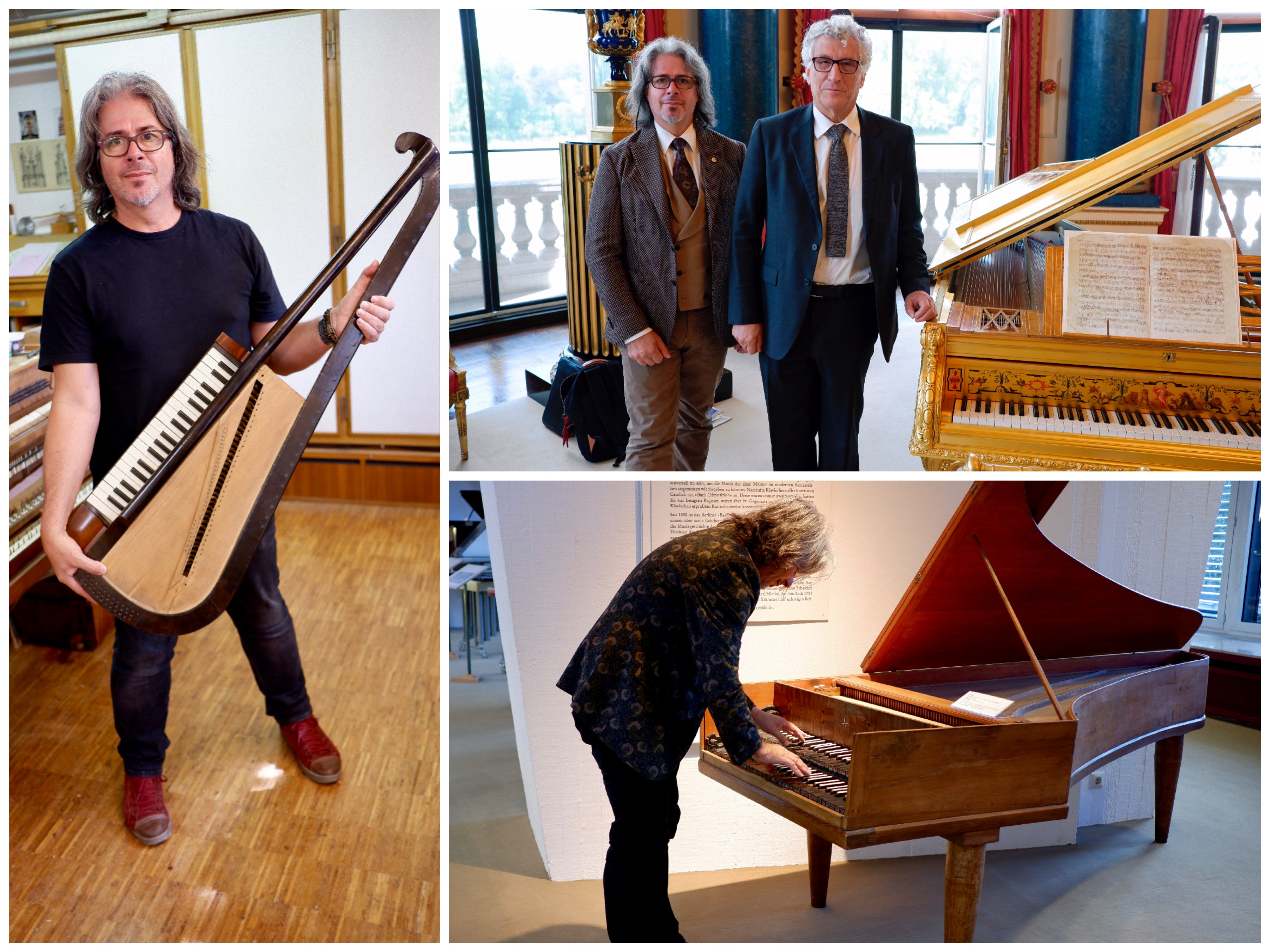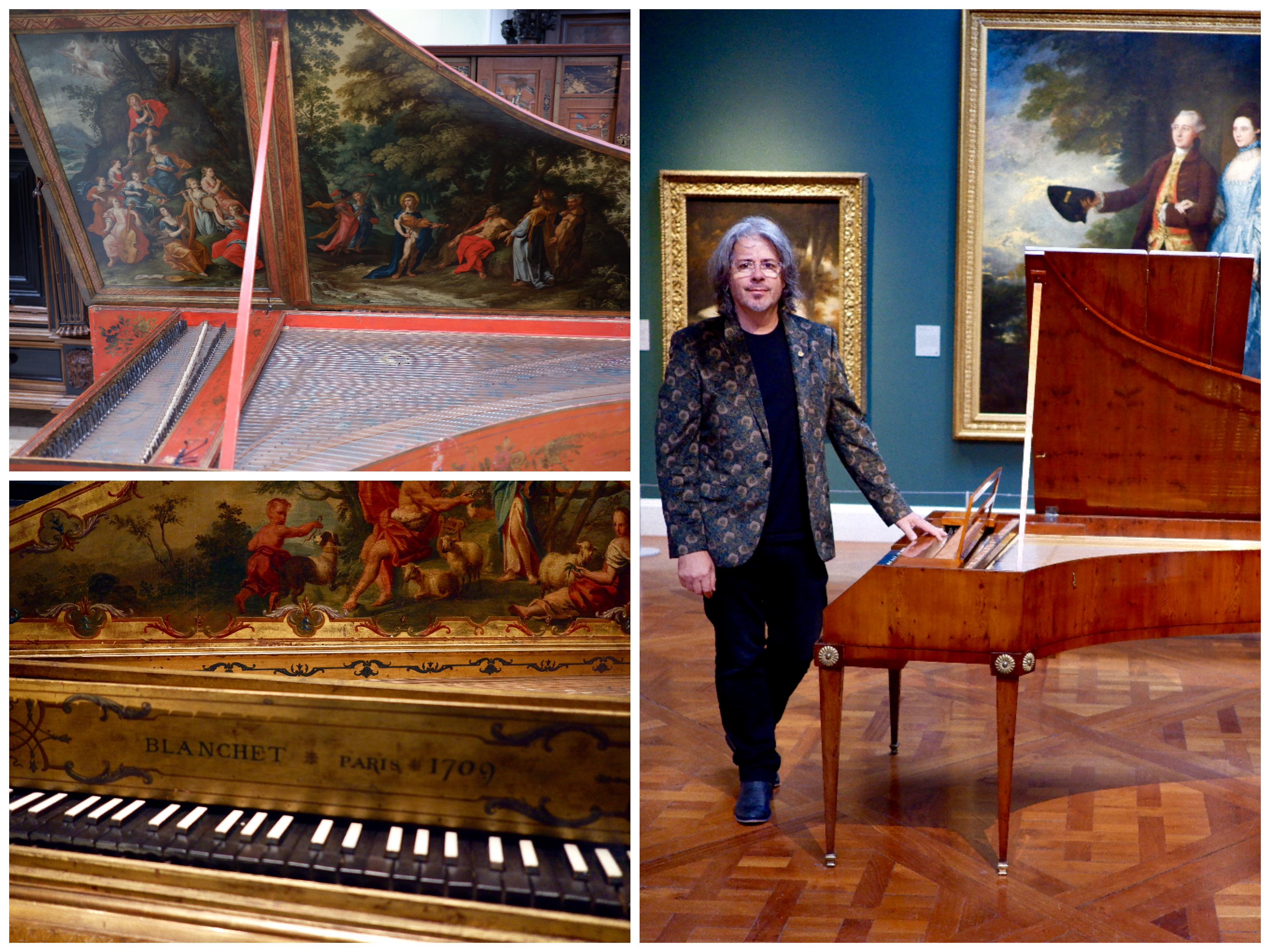2017 Churchill Fellow Paul Tunzi’s Fellowship set out to investigate advanced conservation techniques and the maintenance of historical keyboard instruments. Paul shared with us his Fellowship experience and what he has planned going forward.
My life has changed in ways I could not ever have imagined since receiving a Churchill Fellowship. My proposal to view the majority of significant keyboard collections throughout the UK and Europe over three months was ambitious and daunting, but completely necessary due to the imminent diminishing or even demise of the traditional skills of a keyboard technician and restorer at an elite level. Australia no longer offers any form of piano technical skills training, with the last technician course closing in Melbourne recently. To my knowledge, no piano retail store, college or tertiary institution trains an apprentice piano tuner/technician in. With the majority of skilled concert technicians nearing retirement in Australia, we could face an imminent crisis in the availability of elite, experienced concert technicians within the next decade or even sooner.
In 2016, The Western Australian Academy of Performing Arts at Edith Cowan University received an unprecedented gift of 140 rare historical keyboards. Known as the Founding Pianos, the collection contains 18th and 19th century keyboards of international importance, as well as what’s believed to be the first piano to come to Australia, the ‘First Fleet’ piano. The question primary to my Churchill Fellowship was, Who is going to be appropriately trained with the required skills to maintain this valuable collection into the future? A question also relevant to private owners of keyboard instruments.
The research took me to the ‘motherlands’ of keyboard instrument development and production: Italy, Vienna and London, all representing important keyboard milestones, from the invention of the piano in Florence to the popularisation of the domestic English square piano. My first indication that a diminishing availability of elite keyboard technicians is not unique to Australia was in Heathrow airport customs control. ”What is the purpose of your visit to the UK sir?”, and after a short explanation this response, “wow, a piano tuner, it so hard now to find skilled technicians to tune our pianos, I hope you help us find a solution”.
This same message echoed throughout most of the major cities I visited, an ageing base of suitably experienced keyboard technicians with a dwindling resource available to train the next generation. Many, possibly all, of the same issues as to why Australia has a dwindling traditional skills base appear to be reflected in the UK and Europe. Of all the interviews I conducted the message was the same. The loss of traditional skills training is due to complex reasons including: Economics and cost of traditional training methods; lack of suitable resources to train with and suitable experts available to instruct; lack of opportunities to train in traditional ateliers, retail piano stores or colleges; diminishing training through a changing manufacturing sustainability; and shortage of economically viable employment opportunities in retail piano stores, colleges or tertiary institutions.

One of the highlights of my journey was the chance to view the gold Érard grand piano built for Queen Victoria housed in Buckingham Palace, (seen in the background of the Queen’s 2018 Christmas message). The curator of the Royal Collection kindly spent the day giving me a personal tour of the Palace while discussing his deep concern of the imminent loss of many traditional specialist crafts. His theory of this complex issue is that for too long, we have been more involved in the admiration of the object at the expense of the skills that made it. He cited a two-thousand-year-old shrine in Japan that gets demolished and rebuilt every twenty years so the methods and skills of the construction is never lost. This highlights the importance of preserving the essential skills needed for restoration.
The Churchill Fellowship opened for me the most important venues and access to priceless keyboard instruments and the pre-eminent experts that would not normally be accessible. This gave me the privilege of touching the very instruments once owned or played by, Bach, Handel, Hayden, Mozart, Beethoven, Chopin, Liszt and Brahms. I was also able to experience the manufacturing processes of new fortepianos and harpsichords, and how these instruments are duplicated as close to the original instrument. This allows the musician to experience and play on an instrument suitable for regular use rather than adding any additional wear to priceless original instruments and the information these may still hold.
Upon my return to Perth I received many letters of support to further my passion in regard to traditional skills training. Letters came from venues including Buckingham Palace, The Kunsthistorisches Museum in Vienna, The Rijksmuseum in Amsterdam, and Laboratorio di Restauro del Fortepiano in Florence. These prestigious venues and experts have offered to assist in establishing a skills and knowledge resource hub which will result in an international unity of purpose, to preserve and equip the skills of traditional crafts.

At the start of 2019, following the completion of my Churchill Fellowship report, I was most unexpectedly offered the Vice Chancellors’ Founding Pianos scholarship to study a Master of Arts, researching the restoration of the ‘First Fleet piano’. Considering I do not have any academic qualifications this would require a dramatic shift in life and career. Thanks to the Churchill Fellowship and the connections this gave me, along within the driving passion to help find a solution to the demise of traditional skills and lack of training available, I, with great humility accepted this honour and challenging opportunity.
At the time of this writing I have begun my research in the UK documenting the restoration of the ‘First Fleet piano’ and continuing to develop a skills and resources collaboration with international experienced experts. The aim is to develop a restoration programme that will link Australian technicians with world-leading artisans and to capture the rare art of fine restoration and forward these skills onto the next generation.
It is exciting to consider that Australia potentially will have the facilities with a highly skilled knowledge resource base to be considered as one of the world’s great historical keyboard centres. This will have been in a large part due to the opportunities opened by the Churchill Fellowship.
